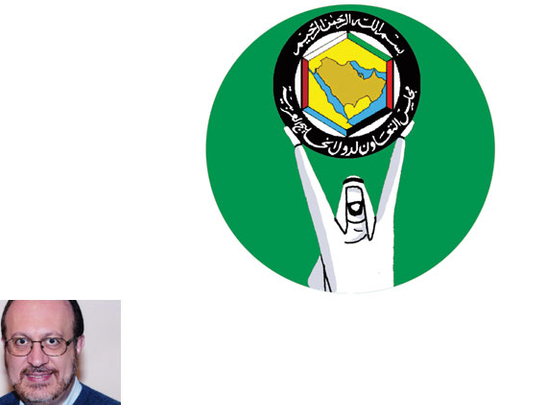
When Iraq invaded and occupied Kuwait on August 1, 1990, the Gulf Cooperation Council (GCC), then a decade-old alliance with teething difficulties, literally froze.
Except for Oman, which mobilised and dispatched an entire division of its armed forces to Hafr Al Batin on August 4, Member-states were immobile for several weeks.
The Kuwaiti ruling family moved to Saudi Arabia and half of the shaikhdom’s population sought refuge in several Arab countries. It was not the organisation’s finest moment, although a United Nations sanctioned coalition force, led by the US, eventually dislodged occupying forces and restored the monarchy.
If Arab opinion concluded that the GCC was nothing more than a tribal gathering throughout the 1980s, recent initiatives concretely illustrated Gulf rulers’ resolve to lead their societies at a time of epochal changes.
By putting order at home, introducing sorely needed internal reforms, extending financial assistance to those in need, dispatching troops to restore order in Bahrain, participating in a Nato operation against a dejected Libyan regime, and by offering a diplomatic parachute to an increasingly illegitimate Yemeni president, GCC leaders embarked on a rare rebirth. What prompted these changes and can the GCC states sustain their current resolve?
Naturally, many reasons motivated Gulf monarchs, but among the more pertinent was the character of the secretary-general. Regrettably, Abdullah Bisharah of Kuwait failed to lead the organisation during the 1990 crisis, frequently disparaging friend and foe alike.
It was his assistant secretary-general, Saif Al Maskeri of Oman, who reminded everyone that the GCC fell within the larger Arab world and that GCC interests coincided with wider Arab interests. Al Maskeri did not believe that Arab Gulf states could be separated from the Levant or North Africa since developments in one area affected the others.
Military force
Simultaneously, several of the more cautious GCC founding monarchs hesitated to support the effective creation of a GCC military force that could repulse foreign aggression, ignoring repeated recommendations from Sultan Qaboos Bin Saeed to invest in indigenous capabilities.
Dithering and excessive prudence meant that the GCC could not be an effective alliance. Needless to say that GCC rulers today, including King Abdullah Bin Abdul Aziz of Saudi Arabia, prefer proactive initiatives.
Moreover, and beyond the leadership question — which was impeccably handled between 2002 and late March 2011 by Abdul Rahman Bin Hamad Al Attiyah of Qatar — GCC leaders tested various policies towards the more pressing concerns confronting them, even if reluctantly.
Over the years, various attempts were made to cajole the Islamic Republic of Iran, for example. Indeed, the lingering disputes over the Iranian occupation of the three UAE islands of Abu Mousa and the Greater and Lesser Tunbs, political tensions created by Syrian-Iranian strategic ties, as well as religious tensions between Sunnis and Shiites, all added bitterness to GCC perceptions and shaped present antagonisms.
Iran, by virtue of its neighbourly presence and long-term ambitions, preoccupied GCC leaders since before 1981 and will likely remain a primary fixation for decades to come. In fact, the last GCC Summit in Riyadh a few days ago, concentrated on Iran’s putative interferences in the internal affairs of GCC states, as Arab monarchs affirmed their steadfast opposition to any meddling.
GCC Secretary-General Abdul Latif Al Zayani’s revelation that both Jordan and Morocco wished to join the GCC, further underscored the rising power of the organisation, to finally regroup 14 Arab ruling families in the eight surviving monarchies. It remained to be determined, however, whether Morocco’s physical separation from the Arabian Peninsula would produce insurmountable hurdles.
For its part, Jordan’s putative membership, notwithstanding geographical compatibility, formed a genuine impediment by literally placing the GCC on Israel’s borders. Still, the mere fact that these two presumed candidacies were made public signalled a reinvigorated GCC will to power, whose leaders telegraphed a desire to distinguish themselves from the ordinary Arab fare.
It is critical to note that while a few overconfident Iranian officials dismiss the GCC’s awakening as nothing more than Arab bravura, savvy Tehran diplomats realise that past deference, along with traditional vacillation, no longer apply.
Few expected it, but when Bahrain called on the GCC to deploy troops on the island, neither Saudi Arabia nor the UAE expressed reticence. Likewise, GCC officials stood by Kuwait when the shaikhdom accused Iran of operating a spy network in the country, while Qatar expressed displeasure after it seized two Iranian boats carrying weapons allegedly destined for opposition forces in Bahrain.
Iranian Foreign Minister Ali Akbar Salehi heard an earful a few days ago in the four capitals he visited, including Doha, which was a far cry from the jovial 2007 courtship when Shaikh Hamad Bin Khalifa Al Thani insisted on inviting President Mahmoud Ahmadinajad to attend a GCC summit.
Needless to say that officials in Doha were flabbergasted after Ahmadinajad unleashed his infamous basij (militia) on the hapless Iranian population in 2009, causing mayhem and inspiring others.
It may also be safe to argue that disappointments with regional actors prompted Qatar and the UAE to participate in several corrective measures, including instantaneous approvals to send air force assets to impose a no-fly zone over Libya. The speed with which Doha and Abu Dhabi decided this matter was so unusual that many took notice.
Rather than simply fall back into a cocoon, recent bold decisions illustrated GCC rulers’ rekindled appetite to lead, instead of pushing challenges under the proverbial rug.
In as much as this reinvigorated craving for action is healthy, the lesson that GCC monarchs must draw from on-going Arab uprisings is to accelerate internal reforms, if for no other reason than to strengthen their legitimacies.
All six member-states have or are introducing a variety of unprecedented political reforms, which bode well for the future. More is needed but unlike their Levantine counterparts, Gulf monarchs seem to understand that the times are changing, and that they must truly guide their populations instead of wobbling.
Dr Joseph A. Kechichian is a commentator and author of several books on Gulf affairs.









